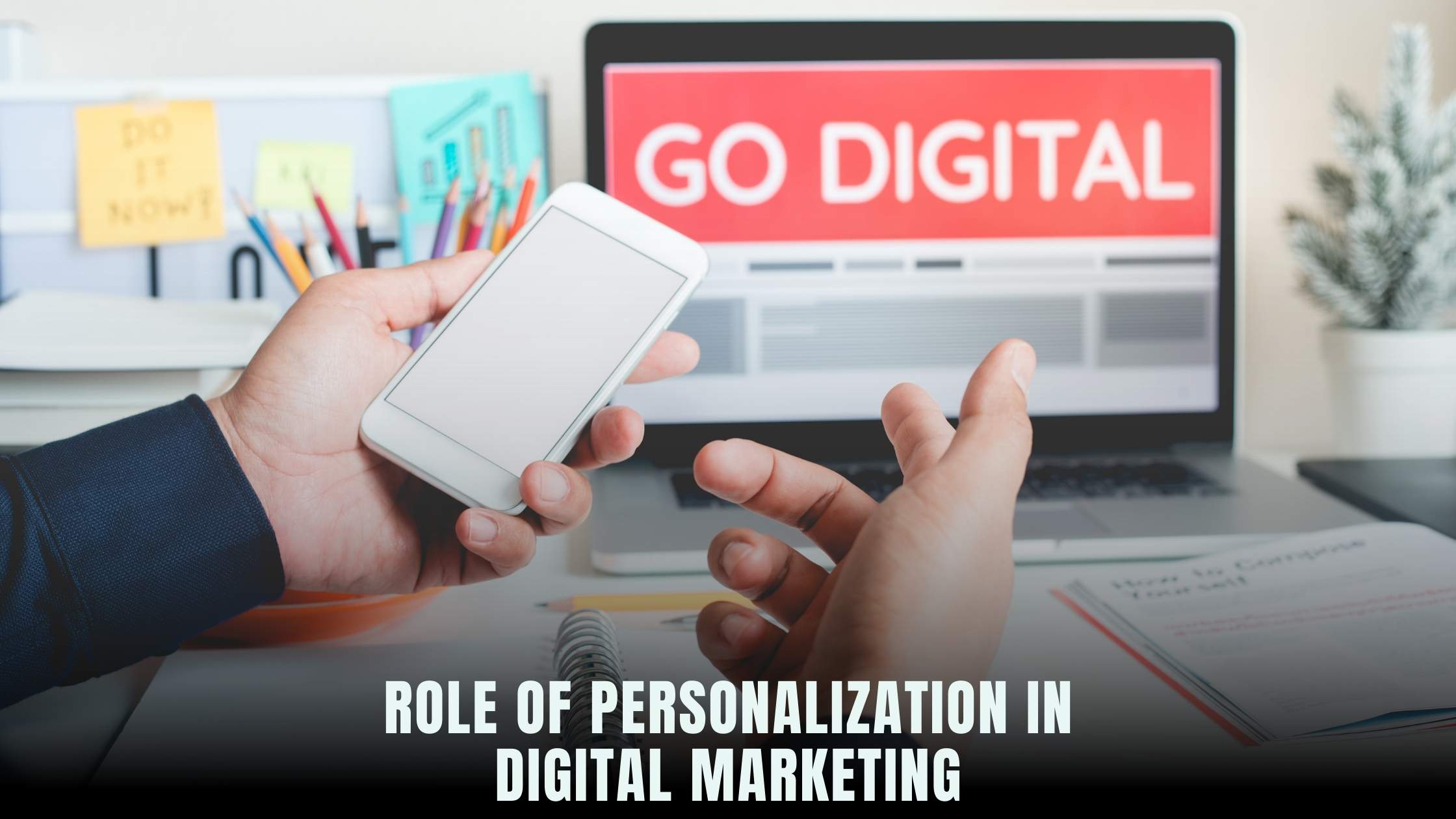Role of Personalization in Digital Marketing: Insights
- Conversational Marketing Software SEO Software Affiliate Marketing Software Marketing Tools


Role of Personalization in Digital Marketing: Insights
Personalization has become a crucial strategy for businesses aiming to engage with their audience on a deeper level. By tailoring content, offers, and user experiences to match individual preferences, businesses can create marketing campaigns that resonate more effectively with their customers. This approach drives higher engagement, boosts conversions, and fosters customer loyalty. Let’s explore the pivotal role of personalization in digital marketing and uncover actionable insights to implement personalized strategies.
The Importance of Personalization in Digital Marketing
1. Enhanced Customer Experience
Personalization enables businesses to offer tailored experiences to customers at every stage of their journey. By leveraging data analytics and customer insights, companies can anticipate user preferences and create a smoother, more enjoyable customer experience. Tools like HubSpot provide businesses with the necessary data to drive these personalized interactions and nurture relationships.
2. Increased Engagement and Conversions
Personalized campaigns significantly increase engagement and conversions compared to generic messaging. By delivering content and offers that are relevant and timely, businesses can captivate their audience and compel them to take action. Whether it’s through email marketing with Mailchimp or testing tailored user experiences with Optimizely, personalization plays a central role in compelling customers to interact and convert.
3. Building Customer Loyalty
Personalization fosters stronger customer loyalty by making customers feel understood and valued. Businesses that consistently provide tailored experiences build stronger connections with their audience, resulting in repeat purchases and brand advocacy. HubSpot and Mailchimp offer the tools needed to consistently deliver personalized experiences that drive loyalty.
4. Optimized Marketing Spend
By focusing on high-value customers and tailoring campaigns to meet their specific needs, personalization helps businesses optimize their marketing spend. Rather than a broad approach, businesses can focus their resources on the segments most likely to convert, ensuring a higher return on investment. Tools like Segment are perfect for gaining deep insights into customer behavior and efficiently targeting the right audience.
5. Data-Driven Decision Making
Personalization depends on data. By analyzing customer behavior, purchase history, and demographic information, businesses can tailor marketing strategies to yield the best results. Platforms like Google Analytics offer invaluable insights that help businesses identify personalization opportunities and optimize their campaigns for greater success.
SaaS Products for Effective Personalized Marketing
To implement personalized marketing strategies efficiently, businesses can use a range of SaaS products designed to enhance customer segmentation, data analysis, and campaign automation. Here are some key tools that help businesses maximize their personalized marketing efforts:
- Mailchimp: Mailchimp is an all-in-one marketing platform that offers email marketing, audience segmentation, and automation tools. With features like audience insights and predictive analytics, Mailchimp enables businesses to deliver personalized email campaigns that drive engagement and conversions.
- Segment: Segment is a customer data platform that helps businesses collect, clean, and unify customer data from various sources. With Segment’s data infrastructure, businesses can gain a 360-degree view of their customers and use this data to personalize marketing campaigns across channels.
- Optimizely: Optimizely is an experimentation platform that allows businesses to test and optimize their website and mobile app experiences. With features like A/B testing and personalization, Optimizely enables businesses to deliver tailored experiences to different segments of their audience and drive conversion lift.
- HubSpot: HubSpot offers a suite of inbound marketing and sales software that includes CRM, marketing automation, and personalization tools. With HubSpot’s personalization features, businesses can create dynamic content and tailored experiences for their website visitors and email subscribers.
- Google Analytics: Google Analytics is a free web analytics tool that provides businesses with valuable insights into website traffic, user behavior, and conversion metrics. By analyzing customer data, businesses can identify opportunities for personalization and optimize their digital marketing strategies for maximum impact.
Leveraging Subscribed.FYI for Personalized Marketing Tools
Looking to implement personalized marketing more effectively? Subscribed.FYI is your one-stop solution for discovering top SaaS tools that simplify data management, segmentation, and campaign personalization. Whether you’re exploring tools like Mailchimp, Segment, or Optimizely, Subscribed.FYI provides access to the best deals and insights for enhancing your marketing strategies.
By visiting Subscribed.FYI Deals, businesses can unlock exclusive savings on premium tools designed to streamline personalized marketing and improve overall marketing performance.
Conclusion
Personalization has transformed digital marketing by enabling businesses to offer relevant and tailored experiences that resonate with their target audience. From enhancing customer experiences and increasing engagement to optimizing marketing spend, personalization is key to driving long-term success. By leveraging SaaS products like Mailchimp, Segment, Optimizely, and HubSpot, businesses can create impactful campaigns that deliver measurable results.
Take your marketing strategy to the next level with Subscribed.FYI—unlock deals on essential tools and empower your business with the latest marketing solutions.
Relevant Product Links:








